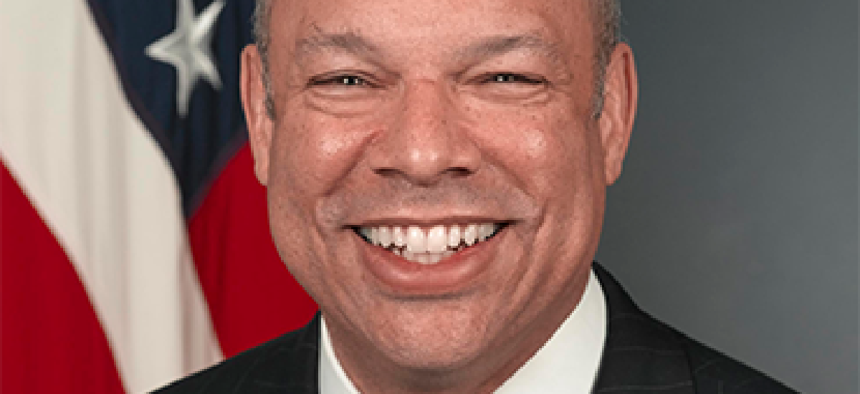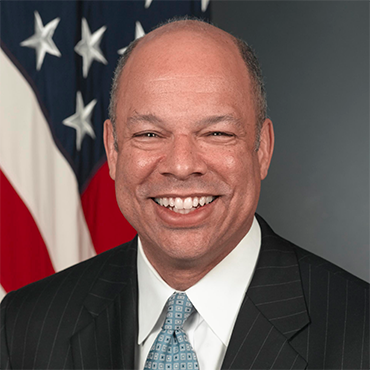DHS chief looks to Congress on visa waiver gaps

Homeland Security Secretary Jeh Johnson wants Congress to help close data gaps that some say could provide a backdoor entrance for terrorists.

Homeland Security Secretary Jeh Johnson is looking to Congress to help close data gaps in the Visa Waiver Program that some say could allow terrorists to enter the country undetected.
In a Nov. 23 statement, Johnson said Congress could add restrictions to prevent foreign travelers from entering the country under the program if they've recently been to terrorism hot spots Syria and Iraq.
"Many in Congress have asked whether legislation would assist in these efforts," Johnson said. "The answer is yes. Working with Congress, we can put legislative teeth in our existing enhancements and possibly make others."
Johnson issued the statement at a time when legislation is brewing in Congress to add restrictions to the Visa Waiver Program. However, a DHS spokesman declined to provide details on which legislative efforts Johnson was addressing.
Sen. Dianne Feinstein (D-Calif.) said on the CBS program "Face the Nation" on Nov. 22 that she and Sen. Jeff Flake (R-Ariz.) were drafting legislation that would address gaps in the program, including barring recent travelers to Syria and Iraq from participating. Feinstein said they plan to introduce the bill after the Thanksgiving holiday.
"Anyone who traveled to Syria or Iraq in the last five years cannot travel to the U.S. using the Visa Waiver Program. Period," Feinstein said in a Nov. 19 statement. "They can still visit, but they need a traditional visa, a process that includes an in-person interview at a U.S. embassy or consulate."
The Visa Waiver Program allows the residents of 38 participating countries to come to the United States without a visa for up to 90 days if those countries cooperate with U.S. security and information-sharing arrangements.
"The bill would require all individuals using the Visa Waiver Program to have a passport with an e-chip to store biometric data," Feinstein said. "This e-chip is more secure and harder to tamper with and contains an individual's biometric information."
DHS recently expanded the information that is reviewed during Visa Waiver Program security checks. Applicants now must also provide city of birth, national identification number, personal and employer contact information, parents' names, aliases and any other types of citizenship an individual might hold.
To participate in the program, travelers must have a passport issued by a participating country and undergo a security check through the Electronic System for Travel Authorization, an online application run by the Department of Homeland Security's Customs and Border Protection.
Sen. Mark Warner (D-Va.) recently said the information travelers must supply does not specifically include off-the-books travel to territory controlled by the Islamic State group.


